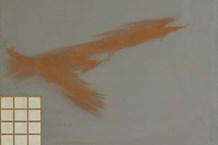“A ban on the heinous trade in poached ivory should not mean that a thousand years of culture and history be outlawed with it. In our areas of specialisation – portraiture – it is particularly poignant.
“The thought that, say, some of our most emotive miniature portraits of Nelson, Byron and the young Queen Victoria become persona non grata – artworks of shame for which there is no market – is up there with bookburning and recent cultural vengeance meted out on the buildings of ancient Syria.”
Philip Mould, art and antiques dealer and TV presenter
“I would not for one moment argue with a ban on the trading of ‘modern’ ivory which has a direct and disastrous effect on threatened wildlife. However, there is nothing to be gained by destroying works of art which were created in a less enlightened age.
“In doing so we are robbing our descendants of fine works of art and craftsmanship whose very existence informs us not only of the past but reminds us of how far we have travelled in our approach to conservation.”
Alan Titchmarsh, TV presenter
“Of course the slaughter of elephants is revolting and must be stopped. But this trend for countries to outdo each other [by] zero tolerance is monstrous. This is not a black and white issue.
“We want to stop the slaughter of elephants but some of the greatest artworks in the world contain ivory. We need to have guarantees that pre-1947 ivory can be traded. Without the trade these items will have no value as museums will not be able to add to their collections.”
Simon Thurley, former chief executive of English Heritage














